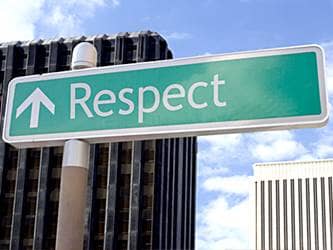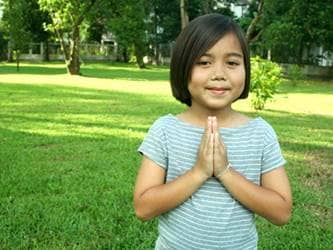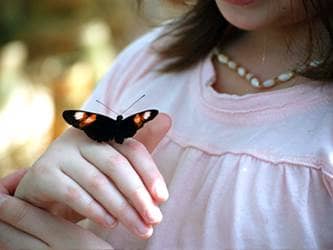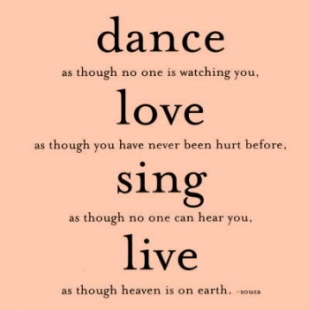It's getting hotter outside. Inside, we need to chill out, one monk says
The natural environment around us has plunged into a catastrophic state. But have we ever noticed that the natural environment inside our body, which includes our peace of mind, is also entering the same situation, due to our boundless greed and over consumption?

Phra Paisal Visalo : ‘‘Dharma is indispensable during this time. Nature and dharma are inseparable. Before restoring nature, we should restore dharma in our mind first.’’
As the world's temperature steadily soars, the temperature inside our mind is also heating up rapidly.
Consequently, global and mental warming situations are not so different, since both phenomena are equally crucial. And they need to be cured simultaneously, since internal heat can affect the external environment. We all should bear in mind that we can survive only if nature survives.
Virulent threats
According to the revered monk Phra Paisal Visalo, the abbot of Wat Pa Sukhato in Chaiyaphum province, the major cause of global warming and other environmental problems stems from humans' detrimental attitudes towards nature.
''Humans fail to realise that they're part of nature. They can survive and maintain their race throughout the passage of time, simply because of nature's mercy and hospitality. Humans should be grateful to nature,'' suggested the monk who has devoted his life to protecting the forest in Chaiyaphum.
''Humans think that they're the master. What we commonly see in this technological-driven era is humans trying to control nature and overly, irresponsibly, and unmindfully exploit it,'' Phra Paisal added.
According to the monk, the incessant exploitation of nature happens because humans think that real happiness comes from the ability to possess a large number of material things, but they are still not gratified.
''They think that the more they have, the happier they are.
Their success in life can be measured from the number and kind of cars they own and the price of the house, land, and other possessions they have, including money in their bank account.
"With this attitude, people highly compete to consume and possess more, with consumerism as the stimulator and the capitalism as the supporter," he said.
Is our greed unquenchable?
Human greed has never been fulfilled because people still want more and more, resulting in the ceaseless destruction of nature in order to pamper their luxurious and wasteful life.
Yet, their happiness has never increased in line with their material wealth, which can be seen in the high rate of suicides and patients with mental disorders and neurosis.
"Such attitudes and consequent behaviours make people ignore and estrange themselves from nature. They are even estranged from themselves. They immerse themselves in many unnecessary activities like talking on the phone almost all the time, shopping, and surfing the net. Everything they do contributes to the ruin of nature," said the monk.
It's no exaggeration to say that our natural environment is in crisis because our interior nature is out of balance. Deep down inside people feel alone, depressed and hopeless. That is why they are trying to indulge themselves with material things.
"No matter how they succeed in transforming nature into a wide variety of consumer goods, assets, and money, humans can't be full and their soul is still empty," stressed the monk.
A cure for our mental imbalance
The monk pointed out that the natural environment can't be restored to its healthy state as long as humans' internal nature is still unstable. The elixir that can bring a balanced mind back to all souls during this crisis is "dharma medicine", specially concocted by Lord Buddha. "Dharma is indispensable during this time. In fact, nature and dharma are inseparable. Before restoring nature, we should restore dharma back to our mind first. People must be aware of the fact that we're a part of nature. Our survival totally depends on the survival of nature," Phra Paisal said.
Apart from curing our soul's sickness, dharma also provides us with many precious lessons on sustainability, self-sufficiency, loving compassion and spiritual happiness, he added.
"Nature teaches humans to enjoy a simple life and encourages them to embrace happiness, which derives from peace of mind, making merit, helping others, and being at one with nature."
The monk went on to say that any souls that seek mental tranquility and adopt dharma as their guide will be lighter, calmer, freer and happier.
"This type of mind will be ready to wholeheartedly protect and save nature. It's a mind that won't take advantage of nature, people, community and society. It's a mind that can return serenity and peace to the world," said the abbot.
A simple yet noble happiness
In this era of consumerism, humans greedily hunt for material happiness and along the way they fail to expose themselves to a more noble happiness. When people start controlling and reducing their desires, material happiness becomes less attractive.
"Happiness occurs easily when humans feel enough. And when that happens it's no longer necessary to exploit nature."
Everything in nature teaches lessons about dharma and the truth of life, but only if we open our eyes and attentively listen to it.
According to Phra Paisal, those with an agitated mind will be calmer when surrounded by nature. Their heart will easily fill with goodwill and when they look deeply into their mind, they can cultivate mindfulness, concentration and spiritual wisdom.
The open-minded can learn several chapters of dharma from nature, whether it be the impermanence of life or the well-knitted connection of all lives. Nature also teaches us the lessons of morality and dedication, from the generous trees that provide shade and shelter to animals, the ants that are diligent and persevere to build their kingdom, and the birds that fly happily with no material burdens.
"Nature is the greatest while we're just a tiny life form. Nature teaches us to be humble and understand our real status. We're just a small part of it. When we feel humble, we will not be arrogant and we will get closer to nature."
How grass and a rock teach dharma

All life is inseparable and nature always can teach us several lessons of dharma if only we open our eyes, pay attention and listen.
Phra Paisal recalled that someone once asked Luang Pu Mun (one of the most venerable monks) how he learned so much about dharma, since he didn't study much. The senior monk answered that "for those who have wisdom, dharma can be found in every nook and cranny". Meanwhile, a reformist monk named Bhuddhadasa Bhikkhu always suggested that visitors to his forest hermitage Suan Mokka (Garden of Release) learn how to listen to the trees and rocks that teach dharma all the time.
"Those who hope for mental prosperity should set aside time to be in nature. With our humble mind, we will see both dharma and our inner nature which lead to the understanding of the truth of life.
"Several revered monks became enlightened because of nature. When they see a falling leaf or a wrinkled lotus, they realise that their time in this world is limited. This is a wisdom derived from exposure to nature."
Nature has been giving for so long, while humans have been taking. It is now time for all of us to take care of our generous provider.
"As nature is in great peril, we should not take advantage of her ... humans should be generous and grateful to nature by fully safeguarding it, whether through reforestation, recycling, protecting wildlife, and raising awareness of environmental problems," Phra Paisal said.
Global warming vs dharma cooling
Natural conservation work is somewhat time-consuming and it is an uphill battle as long as there are selfish people who show no respect for nature. The monk encouraged everyone, nature lovers in particular, to be patient.
"We should not be disheartened or feel uncomfortable. If we understand that protecting nature is like practicing dharma, we will feel more peaceful.
"While the world's temperature is soaring, we should not be frustrated. If we protect nature with our suffering, everything will turn out to be harmful to ourselves. We should not be hotter like our world. With a calm and cool mind, we can create good things for the Earth," the monk emphasized.
By Chompoo Trakullertsathien
Can Buddhist principles help cure the climate crisis?
We live in an age where truth has become an illusion of sorts with both sides of an argument able to cite sources that back their own individualistic claims, but if we look at humanity as a singular whole, then the entire spectrum of thought becomes a circular view of which we are all a part.
There is no doubt that our environment is on the brink of catastrophe; no longer can the living ecosystems on the planet absorb the dualistic trends that have come to define the modern world. We must change either the way we treat the planet or our own individual inner states. A Buddhist approach makes the claim the two are mirror images, reflections of each other.
There have been several articles recently trying to address the reasons humanity is reluctant to embrace the problems developing from our lifestyles of greed and overconsumption. One such argument makes the case that human nature since the beginning of time has dealt with these two conditions. The article concludes with the suggestion that investors can profit off of a transition to a more peaceful state of existence, but it does a fine job of opening up the discussion of human nature in relation to the climate, environment, and energy crisis we are currently facing. No one ever said that a sustainable future is deviod of a vibrant economy.
Particlular Buddhist principles outline that greed and overconsumption arise from an imbalance within the human mind. Here in the Western world, society dictates that we 'juice up' on caffeine or other natural stimulants in order to keep up with our daily responsibilities, and then usually at the end of the day we need an alcoholic drink or a smoke in order to slow down and relax. Every day, rain or shine, we repeat this pattern. 24/7/365 we harvest resources to sustain our civilization.
Walking in nature provides a contrary view to the reality that most of us live through every day. In nature processes unfold more slowly; actions are more deliberate; interdependence is a necessity. Society has spent countless years and innumerable dollars to remove humanity from nature, and the linear experiment has seemingly transformed the human being from a creature that came from and is dependent upon nature to an animal that tries to control and exploit it at the peril of our own species.
The climate and environmental crisis we are facing is providing humanity an opportunity to see another role for our species to fill; that is, one of stewardship and sustainability. Humans should offer more gratitude to nature for all that it provides; our actions should show this gratitude by making sacrifices of some of the things that make us feel 'comfortable'.
Do we need to all live in caves and work by candlelight, like critics of the simpler-life argument claim? Of course not. What we need to do is begin addressing the the issues that are causing our insatiable greed leading to overconsumption of the world's resources. The thought that more stuff creates happiness is an illusion; observe people with money and you will most probably find that they have the same problems that people living in poor neighborhoods have. Money does not calm inner turmoil.
Capitalism is the tool we are using to fuel our competitive lifestyles; we need bigger cars, nicer houses, larger TVs, newer handheld gadgets, and prettier kids than our neighbors. It seems as though, as a society, we are never satisfied with our present condition. I have never been more happy than under my tarp in the forest next to a stream; of course, I love my cheeseburger and beer when I return from these trips, but something happens within my mind to my inner state on these trips into the wilderness that I try to infuse into my life in the modern world.
It is not that we have to give up our amenities that we have come to love so much; rather, we simply need to bring into balance our inner demands with our environmental limits. We need to balance our wants with our needs.
Without first acknowledging that part of the human condition is the fact that our desires can never be fully fulfilled, we will collectively continue to fill the void with products manufactured from nature. We can see in America how people fortunate enough to buy one vacation house in addition to their regular residence are never really satisfied; many of them proceed to buy more houses and fill them with 'goodies' until they own eight or nine or ten of them. This idea that seven billion people can all own more than they need, and that the planet has the capacity to fulfill these desires is truly, common sense tell us so, unsustainable.
The number of pharmaceutical pills that the older generations are currently taking is testament to the fact that even our modern life with all of its creature comforts isn't enough to fill the void created by our desires. We are addicted to our own mental constructs of 'want' when we should be filling ourselves up with what we need.
In the western world, we have even begun to pass down our addiction of wanting more to our children; young people on medication that is ultimately geared to numb ourselves to our deteriorating condition, or the growing number of obese children in America shows a tangible, visual example of this problem.
We certainly try to transform the world's resources into products that make us feel full; products and experiences that fill our soul with awe and make us say 'Wow!', but I have only found that natural landscapes and living beings are capable of producing a level of beauty that inspire us to walk within balance on land. A first generation iPhone simply makes us want the 3G version.
We will remain forever locked in a cycle of suffering as a society while we depend upon shopping malls and infomercials to provide our happiness. True happiness comes from caring for something with all of your being and having that living being flourish from your efforts. Destruction and degradation only brings about more suffering. Compassion is the fertilizer for life.
To simply state that our survival depends upon the survival of nature is not working because the planet is so large while the human perspective is so small. Those most responsible for climate change and environmental degradation have built castles that shelter them from the most damaging effects (they also have the luxury of moving from one affected region to one not in full crisis mode, to their second, third, or fourth home). We need to find a way to feel full with what we need and let go of what we want. The Rolling Stones get it! (Is there anything better than Rock&Roll Buddhism).
According to Buddhist dharma, "Nature teaches humans to enjoy a simple life and encourages them to embrace happiness, which derives from peace of mind, making merit, helping others, and being at one with nature". I simply do not see happiness, peace of mind, or people helping others in the protests against climate change and environmental protection. To be frank, the anger and vitriolic language used by protesters is frightening and contrary what all Americans seek. I see selfish attachment to a dying philosophy of economics, one that takes from the earth everything that it wants and leaves a scarred, dying landscape for future generations.
A mind that has evolved through dharma practice is ready, willing, and able to protect life at all levels. To this type of person, violence against nature is as much of a crime as violence against another human being. This type of mind is geared to feel compassion for others, compassion for animals, compassion for plants, heck even compassion for mountains. These people dedicate their lives to protecting those things that are truly valuable and sustain life for future generations.
We can achieve serenity and peace within ourselves and then bring that state to our public discussions and economic activity. We are evolving past the destructive tendencies of the twentieth century; but we are in the midst of a struggle of epic proportions to bring about that change. This movement is as natural as the water fresh off the Divide or the blood in our veins; it is born from the grasses and trees and the hairs on our heads.
When we think of the times that we have felt happy in our lives, we find that those times are when we have felt full; so full that sometimes it leaks from our eyes or tries to escape through our pores giving us goosebumps. The way the wind moves through the grass; the colors in the sky during a cosmic sunset; kids blowing bubbles in the backyard; watching the Milky Way mist drift across the night sky. This is spiritual happiness. Material happiness pales in comparison to the happiness given to us by nature because our things are essentially empty. The nicest castle without compassion as its foundation becomes a dungeon, full of torturous screams that echo within the inner soul.
By allowing the destruction of nature to continue, we are allowing the destruction of our soul and spirit. The greatest writers and scientists of the past have all used nature as their inspiration. Without vibrant natural communities, we are creating a destiny for our species devoid of human creativity, filled with so much inner turmoil that we are only left with war, greed, apathy, and hunger in our world.
To go about life collecting material possessions and cataloguing them within our homes and businesses neglects the one fundamental truth of life, that is, life is impermanent. To attach ourselves to a materialistic culture goes against the very nature of our own lives; none of this stuff can come with us afterwards; the best gift we can leave behind is a vibrant natural world, free from pollution and teeming with life.
To stand in an old growth forest, or swim through a healthy coral reef, or see a herd of elk file over a mountain pass teaches us humility that we can then bring back to our executive boardrooms. With these new eyes trained in compassion and humility, we are then able to execute business strategies that align our deepest desires for happiness with our desires for materialistic goods.
Human society IS out of balance; there is no question of that. The question is whether we can achieve something beyond the suffering that wanting creates. Do we have the courage to create a sustainable world?
Put down the coffee, cigarettes, alcohol, prescription pills, Blackberries, iPhones, video games, and laptops for a few hours every day and sit in the grass and listen to wind and watch the clouds. Interrogate the landscape and sky. Ask questions to the natural world and wait for a response. Tell a tree how much you value its existence, or pat a rock on the back and say 'good job'.
The planet simply can not afford seven million people all going full throttle accumulating material possessions 24/7/365. The Western world is waking up to the fact that nature will continue to give us everything we need, but if we continue taking everything we want it will die.
To protect nature comes from the same instinct built in us to protect our own children.
The heated rhetoric being spewed by people yet unwilling to acknowledge the severity of the problem facing humanity is simply an outward reflection of their inner state. Our minds have become so cluttered with materialistic goods that our species has begun to lose our connection to the natural world; this is what is allowing us to dance along the edge of destruction and say 'not yet' to the increasingly desparate claims for humanity to take responsibility for its actions.
We live in the present; the dharma is here; if it works, we should use it to help solve our problems.
By John Guerrerio
























